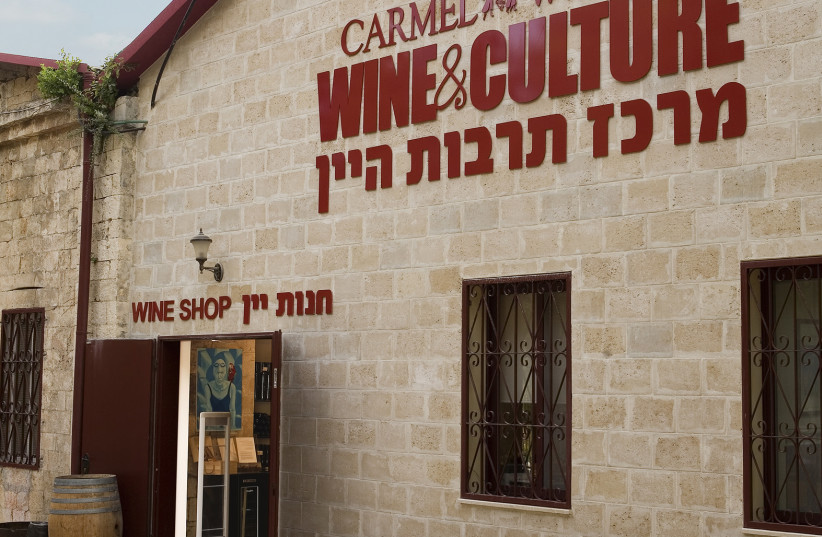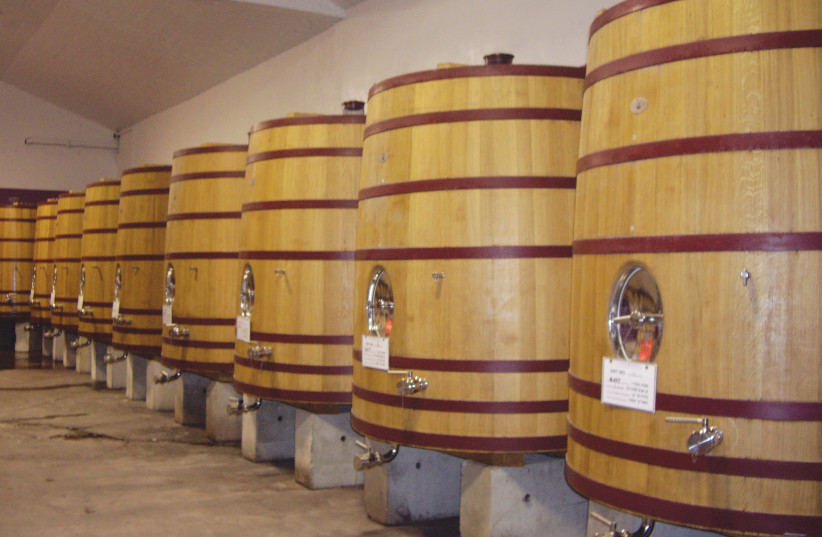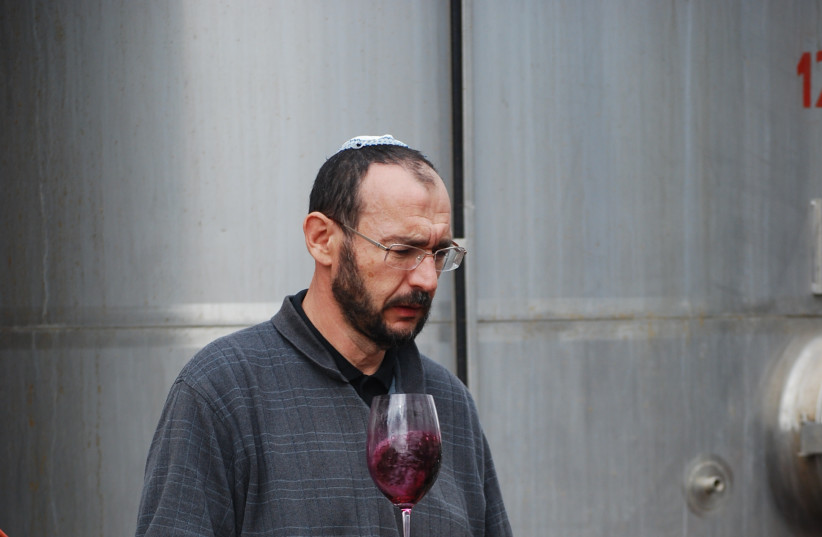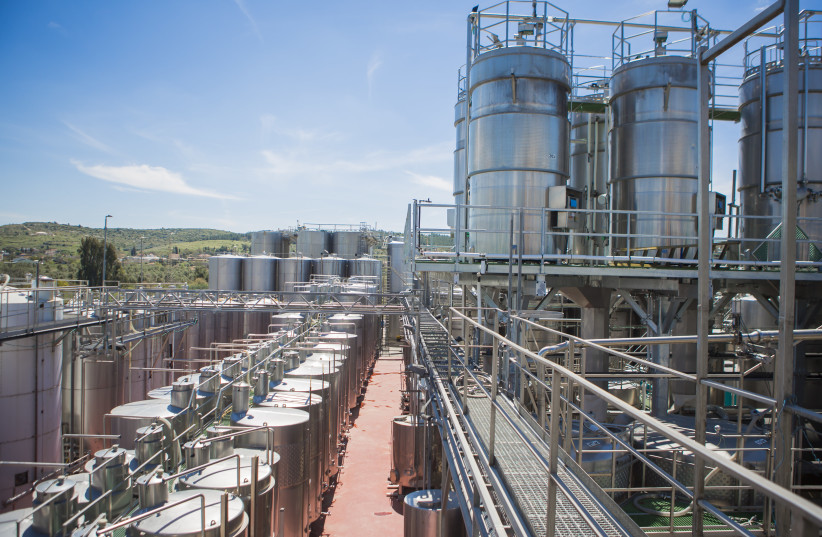We are taught that in wine there is truth. However, no doubt we are in a post-truth period, where presidents and prime ministers, a la Trump, Netanyahu and Johnson, are often accused of creating their own truths. Fake news is in. There are also instances of wineries reinventing history.
Don’t assume that everything you read about a winery is historically correct. Closer examination shows how wineries are prepared to have a very flexible interpretation of the facts, to suit the imagination of a particular marketing department of the time. It is rather like rewriting history in reverse.
However, rather than being outright lies, most of these are based on some form of factual information. Of course, if repeated long and often enough, the story becomes the new reality. As was attributed to both Mark Twain and Churchill: “A lie is halfway round the world before the truth has got its boots on.”
“A lie is halfway round the world before the truth has got its boots on.”
Mark Twain and/or Winston Churchill
The lies and fake news of Israeli wine
The most well-established mistruth is that of Carmel Winery, no less. The historic winery of Israel was established in 1882. This statement “Since 1882” even once appeared on their logo, but it does not make it true. The truth is that their first winery, Rishon Le Zion Wine Cellars, was opened in 1890. (Their distinguished founder, Baron Edmond de Rothschild, decided to create a wine industry only in 1887.)
Zichron Ya’acov Cellars, the oldest winery building still in use, was founded in 1892. The Carmel name was used in 1896 for the first time, but this was not even for the winery but for an independent export marketing company called Carmel Wine Co.

The name was used for the first time in the local market in 1902, when it was referred to as Carmel Oriental. Carmel Oriental serviced the Ottoman Empire, and Carmel Wine Co. worked with Europe, Great Britain and America. In 1906, the Agudat Hacormim (the winegrowers’ cooperative) was formed, known as Societe Cooperative Vigneronne des Grandes Caves.

So how do they justify using 1882 as the founding date? Well, there is a tenuous connection. The farming villages of Rishon Lezion and Zichron Ya’acov were founded in 1882. The first three experimental vineyards were planted in 1882, and Baron Rothschild did send an agronomist to survey Palestine in that same year. On these tenuous threads the white lie was first told, and over time it became fact through years of repetition.
By the way, the Golan Heights Winery was established in 1983. However, the first vineyards were planted on the Golan in 1976, initially without any intention to create a winery. According to the Carmel rationale, it could have been said that the Golan Heights Winery was founded in 1976!
POSSIBLY, BARKAN decided to follow Carmel’s example, but with a 90-year gap between fact and “alternative fact” instead of the eight years in Carmel’s case. Barkan was founded in 1990 by Shmuel Boxer, Yair Lerner and partners. I know this to be the truth. Barkan Winery did not exist beforehand. I was around at the time. This was the reality, and this was also the story that the winery published.
Suddenly, in the last few years, however, they decided to publish a new story. The winery founded in 1990, was in “fact,” founded in 1899. How did they do this? By rewriting history in reverse! They did this by putting Barkan at the head of historical events that did happen.
The story, according to Barkan, began when Shlomo Friedman founded a winery in Petah Tikva in 1899. In 1964, the winery was sold to Tnuva and became known as Friedman Tnuva. In 1971, it was sold to Stock WEST and was renamed Harmartef. In 1988, they planned to build a new winery on the Barkan Industrial Estate near Ariel but went bankrupt. Two years later, hey presto, Barkan rose from the ashes. Hence, Barkan was really founded in 1899!
The bald truth is clear, but in a leap of imagination the creative marketer with a vivid imagination could argue the other way. The winery is now owned by Tempo Beverages. If Carmel was founded in the 19th century, then it was certainly convenient if Barkan – in the sleight of a hand – could be founded a hundred years earlier, too.
So, in the books and the websites, Barkan is now listed as being founded in 1899. The fake news has become the new truth. Just like Carmel. The only problem is that Barkan got their story wrong. Friedman Winery was founded in Haifa in 1889! So the statements “Barkan was founded in 1899” and “Friedman was founded in 1899” are both incorrect, but that is what is written….so it must be right!
The creative marketing continues with their brand called Segal. The Segal family winery was founded in 1950 in Ramle (and was originally called Askalon (sic) Wines). The Segal family were distillers in White Russia from 1787. In 1925, two distilling brothers made aliyah and were involved in setting up the distillery at Sarona.
The Segal family never claimed they were a winery since 1787. They sold out to Barkan in 2001. Recently, the new truth has surfaced that the winery is since 1787. The long history in spirits and distilling is relevant to the family story but not to when they started the winery. Suddenly we have a 235-year-old winery. Who knew?

ANOTHER ONE where the story is confusing is Arza Winery, which they say was founded in 1847. It is well documented that the Shor family founded its family winery in 1848. The other Shor family wineries talk about 1848. Suddenly a few years ago, in a bout of one-upmanship, Arza Winery decided they were founded a year earlier.
Remember, we are talking about one family member, Rabbi Yitzhak Shor, and the single winery he founded. It should not be complicated enough for misinterpretation. However, as with all these cases, there is a basis of truth that provides an excuse in the eyes of those making the decision.
In this instance, it is agreed that he date is 1848. But if you convert the date according to the Jewish calendar, which is what they would have used at the time, then it corresponds to the year 1847-1848! Hence, the use of 1847 may be justified. It’s confusing, though, and does not help credibility.
What is the real truth? Arza Winery was, in fact, founded in the 1950s by members of the Shor family who had made wine since 1848.
Furthermore, their new winery, or brand, Hayotzer, created in the last decade, also adopts the 1847 date as its founding date. Hayotzer has a very experienced, good winemaker, and the new initiative is to raise the image a notch or two.
However, claiming the history is a little like Michael and Tim Mondavi saying their current new wineries were founded in 1966, the year when Robert Mondavi Winery was established. Of course, they would not do it, but in Israel anything goes! It’s not by the book, and I am not saying it is wrong. It is just a certain “interpretation.”
Another creative practitioner is Tishbi Winery. Now, we all know that Tishbi Winery was founded in 1985 by a family of vineyard growers. In their story, they write “Tishbi Winery, Vintners Since 1882.” I can’t guarantee the date they began as growers here. I have heard 1889 mentioned, but it was not 1882.
I suppose they want to give the impression they have been working in wine since the beginning of Rothschild’s investment in vineyards, and certainly no one can take away their long history as grape growers.
A vintner is someone who works in the wine trade or makes wine. A grape grower is not a vintner by most definitions, unless he is the one making the wine. However, this does not change the date the winery was founded.

TEPERBERG WINERY describes itself as “the first family winery in Israel.” It was founded in 1870. Ginio Winery and the Shor Winery were both founded before, in 1840 and 1848, respectively. The Shor Winery was renamed Zion Winery, which still exists today. So, this is Israel’s oldest existing winery. It is still owned and managed by the Shor family, and even the winemaker is still a member of the family.
So Teperberg Winery was not the first winery, the earliest existing winery, nor the first family winery. What they do not mention was that the winery went bankrupt in the 1930s and was only re-established after the founding of the state. This did not stop them claiming the history of what was a new winery called Efrat. No matter, Teperberg is the largest family winery in Israel and the third-largest winery here. The truth without the creativity is complimentary enough.
Wineries regularly make statements in slogans or advertisements without checking thoroughly enough. We have two wineries that claim they are the largest in the country; two wineries that claim they are the biggest exporters; one that claims it has won more medals than any others; and another that claims to have the highest scores.
We have two Jerusalem Wineries, one of them made in Kiryat Arba! There are others that wildly over-exaggerate their production figures. My recommendation is don’t make wild claims of being “the best,” “the biggest” or “the most.” It is a dangerous game to play, and it always looks stupid to someone else who knows the truth or has checked to find that the grand statement is not correct.
THE CURRENT issue that has raised its ugly head is wineries selling imported wines but marketing them as being grown in Israeli vineyards or as “Israeli” wine. I hope it is unintentional dishonesty that may be described, at best, as “misleading.”
Don’t get me wrong, most of the industry is horrified by this and thoroughly against this malpractice. However, it does not look good when the culprits are our two largest wineries, which seem to have done it without shame. It certainly comes under the heading of ethics, morals and honesty. A winery that is casual with the truth in this way does not show a great deal of respect for its customers.
As far as creative histories are concerned, it is always advisable to take refuge in the facts. The truth is always the best story. It appears there are lies, damned lies, statistics and some wobbly historical statements by certain wineries that don’t stand up to scrutiny – but undeniably, they all get out of jail because there is a basis of truth in each. You just need to be very flexible in your interpretation of the facts to see it! In vino veritas may be true, but unfortunately here in the virtuous Holy Land, not always.
The writer is a wine industry insider turned wine writer, who has advanced Israeli wines for 35 years. He is referred to as the English voice of Israeli wine. www.adammontefiore.com
